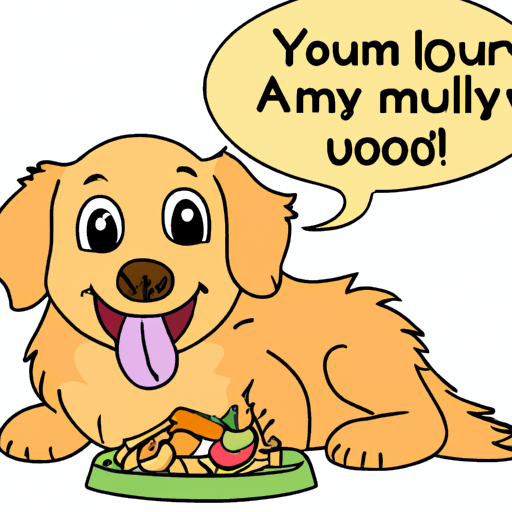As a loving caregiver, you’re not just responsible for your dog’s emotional wellness but also their physical health. This includes knowing what foods are safe for dogs to eat. In this guide, we’ll explore the various foods that are not only safe but also beneficial for your canine companion.
1. Canine-Safe Fruits
Fruits can be a great source of vitamins and fiber for dogs. Here are a few that are safe for your furry friend:
- Apples: They provide a good source of vitamins A and C, as well as fiber. However, always remove the seeds and core.
- Bananas: These are high in potassium and vitamins but should be given in moderation due to their high sugar content.
- Blueberries: These small fruits are packed with antioxidants, fiber and phytochemicals, which can benefit your dog’s health.
Please remember to always wash fruits thoroughly and remove any seeds or pits, as these can often be harmful to dogs.
2. Safe Vegetables for Dogs
Veggies can be an excellent low-calorie snack for dogs. Some safe options include:
- Carrots: These are a good source of vitamin A and can help with dental health.
- Green Beans: These are filling and low in calories, making them a good choice for overweight dogs.
- Sweet Potatoes: These are rich in dietary fiber, vitamin B6, vitamin C, and beta carotene.
3. Proteins Dogs Can Eat
Protein is crucial for dogs. When it comes to meat, stick to lean options like:
- Chicken: It’s a great source of protein that can be easily digested.
- Turkey: This is another good source of lean protein. However, ensure it’s cooked and not seasoned.
- Fish: Salmon and tuna are rich in Omega-3 fatty acids, which can support your dog’s immune system.
| Protein | Benefits |
|---|---|
| Chicken | Easy to digest, high in protein |
| Turkey | Lean protein, must be cooked |
| Fish | Rich in Omega-3 fatty acids |
4. Safe Grains for Dogs
Whole grains can be a source of healthy fiber for dogs. Safe options include:
- Brown Rice: This can be a good source of fiber and helps to regulate bowel movement.
- Quinoa: This grain is packed with protein and calcium.
- Oats: They are a great source of soluble fiber, which is beneficial for dogs with bowel irregularity issues.
5. Can Dogs Eat Dairy?
In small quantities, certain dairy products can be safe for dogs. However, many dogs are lactose intolerant. Safe dairy products include:
- Cheese: It’s a great treat for dogs, but it should be low in fat and salt.
- Yogurt: It has high levels of calcium and protein. Choose yogurts with live active bacteria and no sugars or artificial sweeteners.
6. Can Dogs Eat Nuts and Seeds?
While some nuts, like almonds, can cause digestive upset in dogs, others, such as peanuts and cashews, can be given in moderation. However, avoid all types of nuts covered in salt and seasonings.
7. The Role of Dog-Safe Foods in Training
Dog-safe foods can be used effectively in training sessions. Small pieces of chicken or cheese can make for great rewards. Always remember, treats should make up no more than 10% of your dog’s daily caloric intake.
8. Frequently Asked Questions
Q: Can dogs eat raw meat?
A: While some advocate for raw diets, raw meat can contain harmful bacteria that can cause foodborne illnesses. Cooked lean meats are a safer choice.
Q: Are any fruits or vegetables toxic to dogs?
A: Yes, fruits like grapes, cherries, and avocados are harmful to dogs. Vegetables like onions and garlic are also toxic.
Q: Can dogs eat eggs?
A: Yes, dogs can eat eggs. They’re a great source of protein. However, they should be cooked to avoid the risk of salmonella.
Q: Can dogs have bread?
A: Yes, dogs can have bread in small amounts. However, it doesn’t offer any nutritional benefits and can contribute to weight gain.
Remember, while it’s essential to know what foods are safe for dogs to eat, also be aware of foods that are toxic to them. Always consult with your vet if you’re unsure about feeding your dog a certain type of food.



